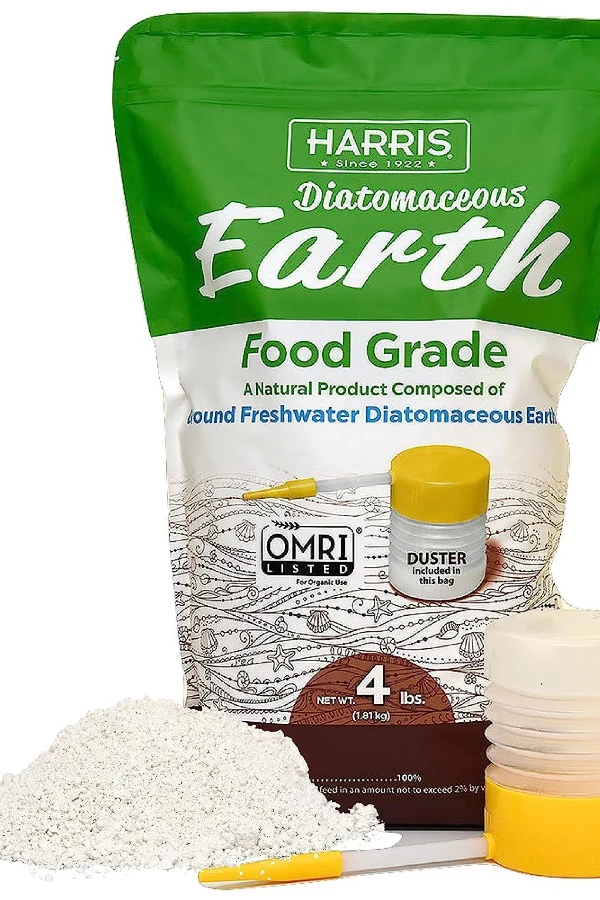Did you know that one of the best ways to safely and effectively control an outbreak of pests in your garden, flowerbeds or lawn is with all-natural diatomaceous earth?
The list of insects that diatomaceous earth can help control is long and impressive. From aphids, slugs, ticks and cucumber beetles, to Japanese beetles, grubs, spiders and more – it can help gardeners successfully battle an insect invasion in short order. All without the worry of harming you or your pets!
So what exactly is diatomaceous earth? Diatomaceous earth, or DE as it is commonly known, is a powder that consists of fossilized algae. The fossils are actually the remains of extremely small diatoms. These tiny creatures once lived in all types of bodies of water – from streams and rivers, to even large lakes and oceans.
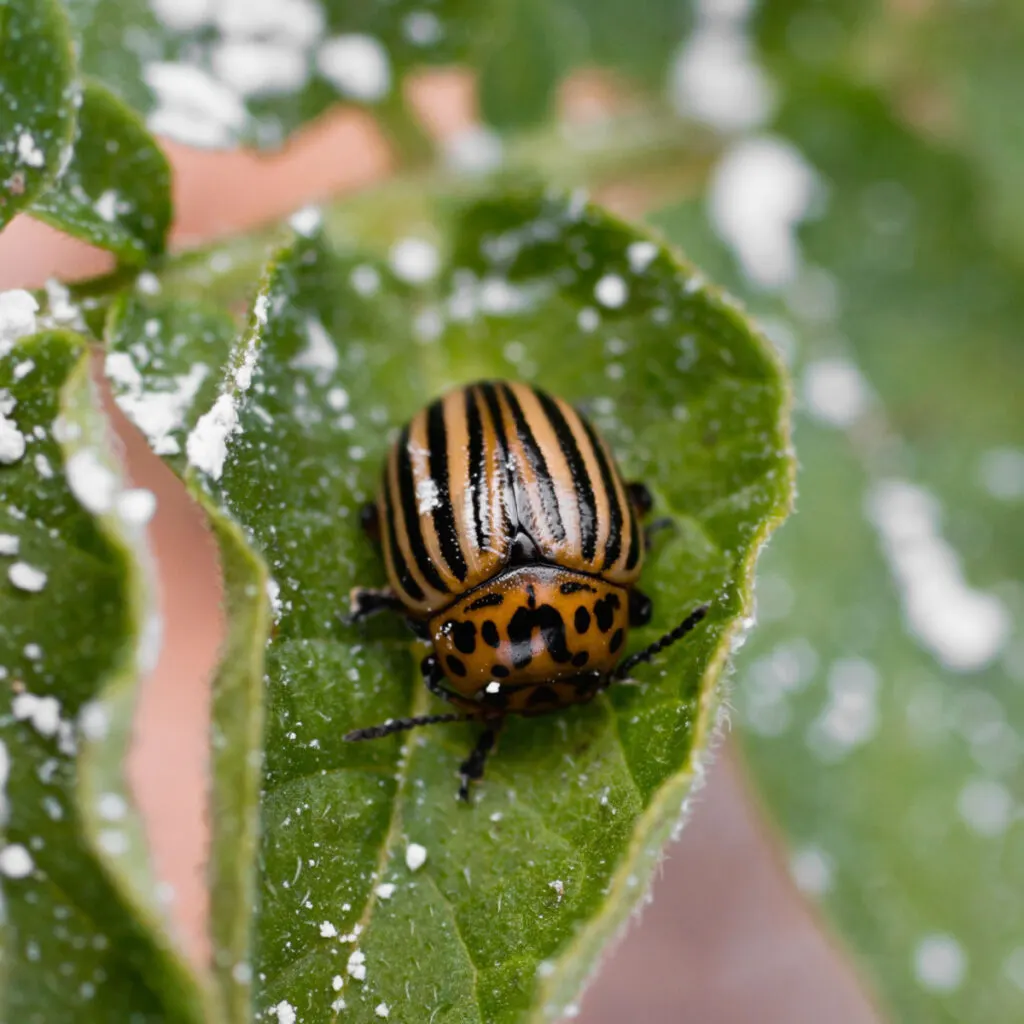
The majority of the algae broke down into what is now silica and is a very common substance on Earth. How common? Silica makes up over a quarter of the Earth’s surface! And as it turns out, the silica and powdery makeup of diatomaceous earth can be very fatal to a wide variety of garden pests, all while being non-toxic to humans and pets!
How Diatomaceous Earth Works On Pests & Garden Soil
So how does DE work on pests? In general, the silica powder cuts into the soft bodied skin of insects as they crawl over it, or as it is sprinkled on top of them. When this occurs, the cuts to their bodies dehydrate the insects. In short order, it leads to the insect perishing.
DE actually has a wide range of uses both commercially and at home. In addition to helping to control insect populations, it can be a great weapon against moles in your yard. DE won’t actually kill moles, but it kills the grubs moles look for. And once the grubs are gone – the moles leave too!
DE can also be spread out on your soil and worked in to help break up heavy soils. Not only does it help to keep the soil from being overly clayish and hard, it also allows it to then absorb water and nutrients more easily.
Finally, DE powder can also be used to deodorize compost piles and keep them free of smells. It will also help to kill off gnats and flies that tend to congregate around working compost piles. And more good news – it doesn’t harm earthworms that might be working your pile in the least!
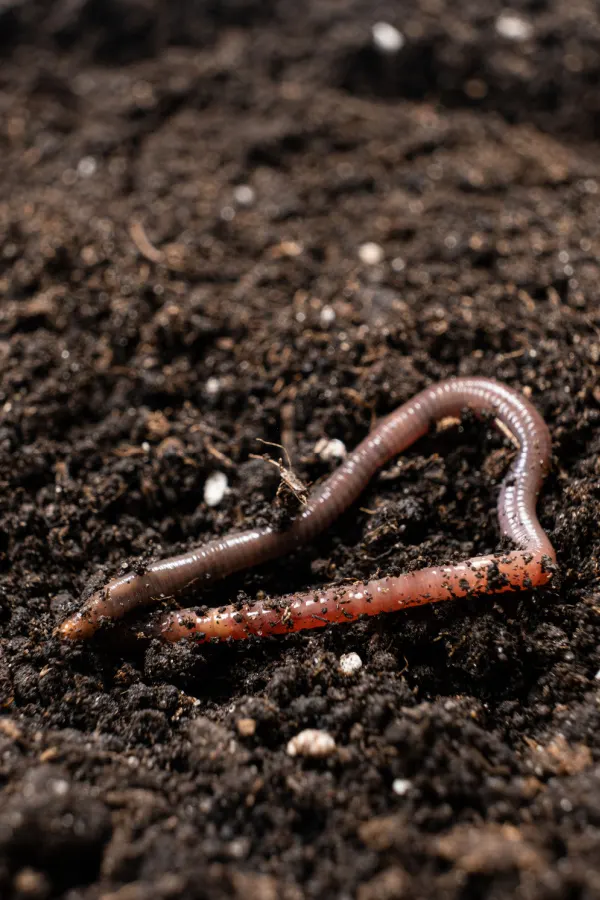
How To Use Diatomaceous Earth To Control Pests Naturally
Always Use Food Grade DE
First and foremost, when using DE in your garden, flowerbeds or lawn, you want to make sure your are using “food-grade” diatomaceous earth. It is non-toxic and completely safe to humans and pets, but luckily for gardeners, quite fatal to garden pests. Affiliate Product Link: HARRIS Diatomaceous Earth Food Grade, 10lb with Powder Duster
There are many types of DE available, and many contain added chemicals, pesticides and other additives that can make them unsafe for using around plants – especially ones you may be growing for food.
Food grade DE, however, is all natural. As with any powdery substance, even though it is non-toxic, continuous inhalation can irritate the lungs and nasal canal. For this reason, using a dust mask and gloves when applying DE is always best.
How To Use Diatomaceous Earth
Diatomaceous earth can quickly help to eliminate pest issues when either sprinkled on the soil around plants for ground dwellers, or on the leaves of plants for pests that climb aboard to do their damage.
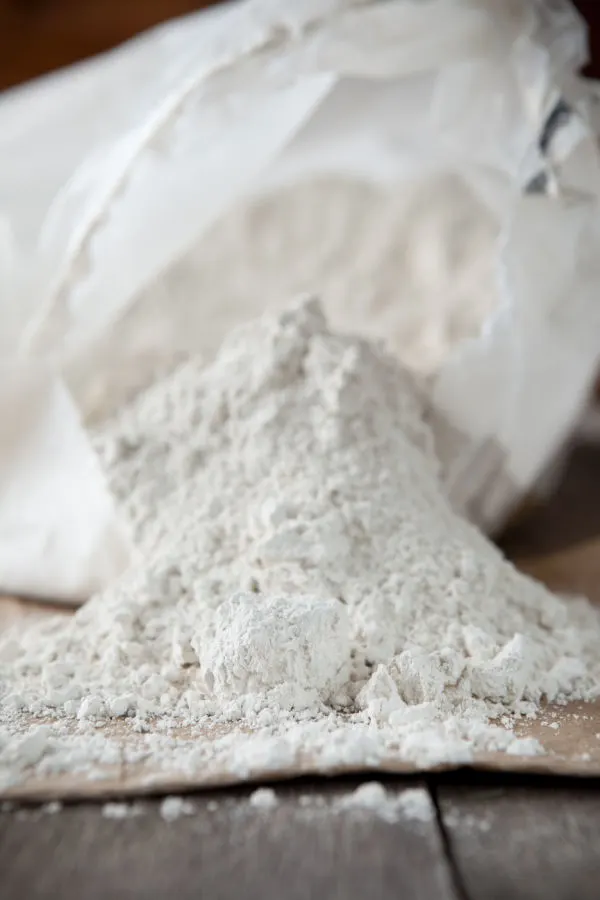
For starters, when using DE, only use in dry weather. If diatomaceous earth comes in contact with water or gets moist, its sharp edges dull and it won’t kill the pests. Once it gets wet, it will need to be reapplied to be effective.
Depending on each application, the exact way to use diatomaceous earth varies. With that in mind, here is a look at some of the best ways to use DE in your landscape, along with specific instructions for each pest or issue you are trying to control.
Protecting Plants From Beetles – How To Use Diatomaceous Earth
When using on vegetable or flower plants to control against beetles, dusting the foliage is the way to go. This can be effective against both adult Japanese beetles and cucumber beetles.
Once the two pests come in contact with the powder, they suffer from cuts that eventually kill them. Again, you will need to reapply if rain or heavy moisture hits the leaves as once it is wet, it will lose all of its effectiveness.
Controlling Aphids – How To Use Diatomaceous Earth
Aphids eat the leaves of plants and live on all sides of the plant. For effective control, dust the leaves and stems with diatomaceous earth. To do this effectively, it is best to use a powder sprayer. This allows the dust to cover evenly and lightly at all angles.
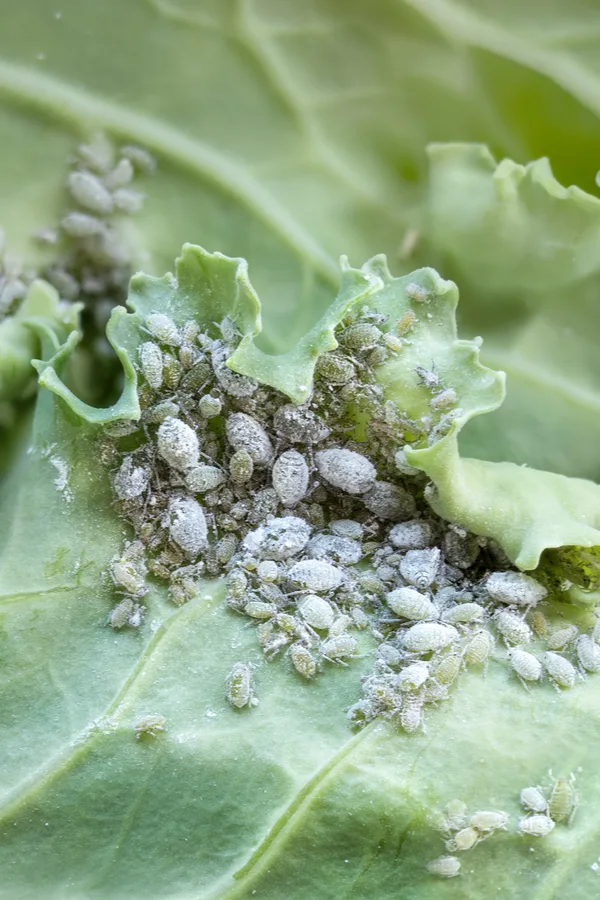
For aphids, that is important as the underside of the leaves is where they hide. Once aphids come in contact with diatomaceous earth, it will inflict cuts on them, and they will die without consuming the leaves.
Grub & Tick Control In Gardens, Flowerbeds – How To Use Diatomaceous Earth To Kill Pests
Grubs can prove fatal for gardens, flowerbeds and lawn with heavy infestations. The good news is that diatomaceous earth can certainly help when it comes to minimizing heavy populations of grubs fairly quickly.
For grub control in the soil, sprinkle ½ cup of DE for every few feet of soil space. Next, mix the DE into the soil with a garden fork or rake. The diatomaceous earth will pierce the wax-like outer skin of grubs as it comes in contact with them, drying out their skin in the process.
DE can also be highly effective against ticks when dusted on lawns. It kills the ticks fast and can help in the fight to keep ticks off of you and your pets. See: How To Control Ticks With Ease
Protecting Against Snails & Slugs
Diatomaceous earth doesn’t actually kill snails or slugs. However, you can use it to protect your plants from them quite easily by using it as a barrier. Slugs and snails won’t cross DE to access plants. Because of this, sprinkling it around each plant or circling entire planting areas can keep them far away.
To be effective, make sure that it stays in a dry protective ring. When it is moist, the snails and slugs are able to cross the paste-like mixture with ease. You will need to reapply a dry coating after rains or heavy dew.
Ants – How To Use Diatomaceous Earth To Kill Pests
There are a couple of ways to control ants with DE. If you are lucky enough to find the source of the colony, you can eliminate it quite quickly with DE. Sprinkling the powder on and around the ant hill will eliminate any ants as they come or go.
If you want to avoid spending time finding the colony of ants, it is best to sprinkle it around the plants invaded by ants. It will eliminate the ants that come in contact with the powder within 12 to 24 hours.
Using Diatomaceous Earth On A Compost Pile
Diatomaceous earth has a porous structure. Consequently, the porous structure helps it absorb any foul odor like that of rotting compost or organic waste. It can also absorb the odor of cat or dog litter too.
Eliminating odor using diatomaceous earth is simple. Simply mix diatomaceous earth into the top layer of the compost using a garden fork. This will effectively get rid of any foul smells – and will also have the benefit of killing in flies or gnats and their larva that can be in the pile as well.

One thing is for sure, diatomaceous earth can be quite the effective tool for your garden and landscape when used right. Rather than using chemical-based pesticides, this natural powder can effectively keep pests from ruining your flowerbed and garden plants.
It is important to note that DE should be used only when needed, as it can also kill beneficial insects such as honeybees, butterflies and more. If you only have a few pests, it is better to allow nature to run its course that always reaching for DE. As with everything, moderation and balance are the true key to ultimate success! If you are looking for more natural pest-deterrant methods, be sure to check out The Best Marigolds To Grow To Repel Pests, Attract Pollinators – And Add Big Color!
Follow Our Facebook Page For Great Gardening Tips And Advice! This Is My Garden Facebook Page
This Is My Garden is a garden website created by gardeners, for gardeners. Jim and Mary Competti have been writing gardening, DIY and recipe articles and books and speaking for over 15 years from their 46 acre Ohio farm. They publish three articles every week, 52 weeks a year. Sign up today to follow via email, or follow along!

